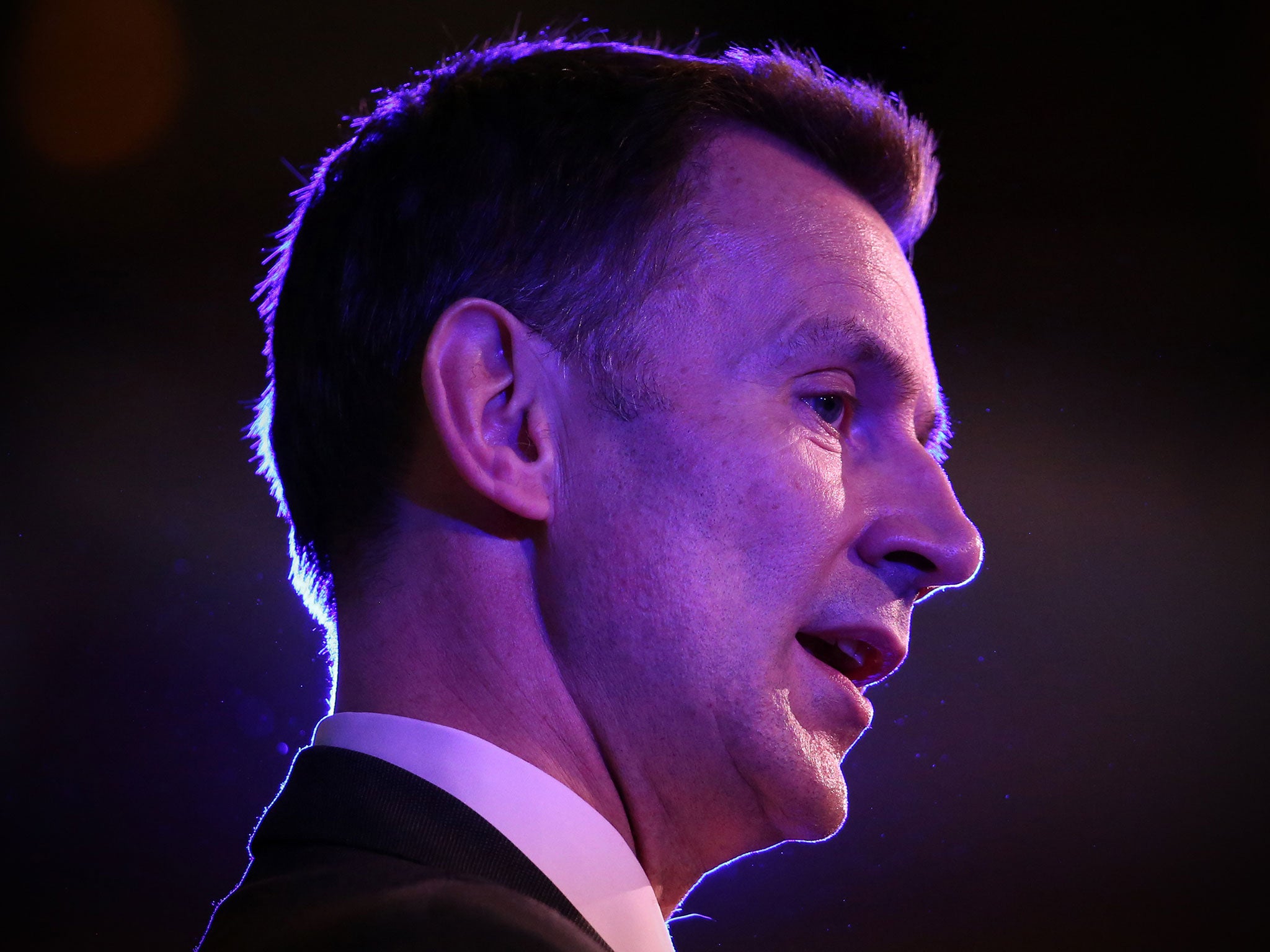Junior doctors' strike: Jeremy Hunt's tactics are to blame for an unnecessary dispute that may put lives at risk
At every stage, the Government has got this wrong, from claims about weekend working to the spin about a pay rise

Your support helps us to tell the story
From reproductive rights to climate change to Big Tech, The Independent is on the ground when the story is developing. Whether it's investigating the financials of Elon Musk's pro-Trump PAC or producing our latest documentary, 'The A Word', which shines a light on the American women fighting for reproductive rights, we know how important it is to parse out the facts from the messaging.
At such a critical moment in US history, we need reporters on the ground. Your donation allows us to keep sending journalists to speak to both sides of the story.
The Independent is trusted by Americans across the entire political spectrum. And unlike many other quality news outlets, we choose not to lock Americans out of our reporting and analysis with paywalls. We believe quality journalism should be available to everyone, paid for by those who can afford it.
Your support makes all the difference.When, in their election manifesto last spring, the Conservatives pledged to create a “seven-day” NHS by 2020, it seemed a masterstroke of public relations. At last, a party long associated with indifference or indeed hostility to the NHS was showing that it took people’s health seriously. Now their uncosted and unfunded promise is coming back to haunt them as junior doctors launch the first of three days of industrial action, starting on Tuesday, with the last of them – a full walkout on 10 February – threatening to be especially devastating.
As the day of the first strike approaches, the Tory spin machine has gone into overdrive, painting the strike leaders as politically driven leftists whose real if unacknowledged goal is not to improve patient safety, or even to protect doctors’ pay and conditions, but to topple an elected government. At the weekend, the Health Secretary, Jeremy Hunt, did his best to feed the conspiracy theorists. “Elements in the BMA are seeing this as a political opportunity to bash a Tory government that they hate,” he claimed. It’s all politics in other words.
Mr Hunt and David Cameron may get lucky in a purely tactical sense. The sympathies of the public now lie overwhelmingly with the doctors, but if a couple of deaths are blamed on the strike that mood could change fast and doctors could morph from overworked heroes into heartless monsters.
The Government does not deserve to get off the hook, however. No one is against a seven-day health service with improved weekend coverage but this is no way to go about it. You cannot take an already overstretched organisation like the NHS, stretch it a good deal further, and not expect to meet resistance, which is what has happened – albeit on a broader scale than ministers anticipated.
The deal that doctors are being offered is artfully packaged but a lousy one underneath. Mr Hunt trumpets the claim that he is offering an 11 per cent pay rise. But the offer does not bear scrutiny. Most junior doctors rely heavily on out-of-hours work to supplement their wages, which are being cut back, so the net result for most of them – notwithstanding the rise in basic pay – will be less money in the end. They are also being offered less money for more antisocial hours. How else can the goal of a 24/7 service be realised on exactly the same level of staffing and, indeed, at a time when the NHS is being told to tighten its belt?
If junior doctors were nine-to-fivers being put through their paces, the Government might have the country on its side. But no one who has hit a busy A&E in the middle of the night and seen how this service in particular relies on young doctors working all hours would ever place them in that category. It is also obvious to most of us, if not to Mr Hunt, that people do not train for seven years to become doctors principally to become political agitators.
Had the Government been interested primarily in improving patient care in the NHS, it would have consulted widely within the profession before deciding how to proceed. Instead, it has presented the doctors with a fait accompli, cooked up with electoral considerations in mind. Opposition to what Mr Hunt has in mind has been almost unanimous. Even the Chief Medical Officer for England, Dame Sally Davies, in a rare political intervention, has said she sympathises with the doctors’ cause while regretting the strike. So do we all. For thousands of people facing operations or suffering from chronic conditions that require impromptu visits to A&E, the next few weeks will be a very anxious time.
At every stage, the Government has got this wrong, from its foolish claims about the need for weekend working, which most doctors do already, to the deceitful spin about a pay rise. If lives are now put in danger, which looks almost inevitable, we will know who to blame.
Join our commenting forum
Join thought-provoking conversations, follow other Independent readers and see their replies
Comments